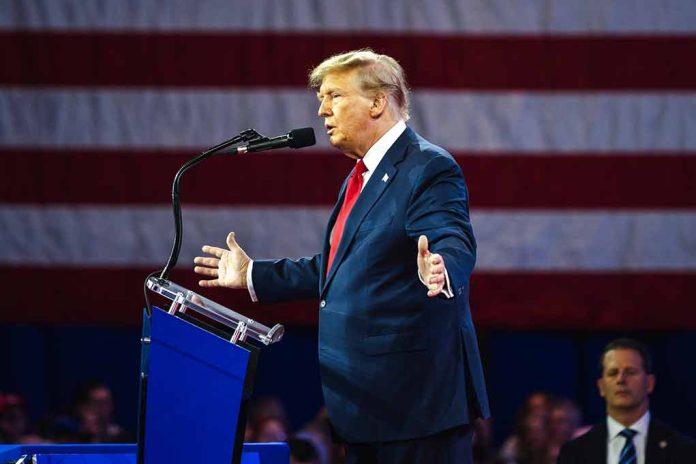
An internal memo reveals that President Trump’s administration plans to cut funding from the Millennium Challenge Corporation (MCC), a move that could impact U.S. influence in Africa and bolster China’s strategic position.
Key Takeaways
- The Trump administration is reportedly planning to significantly reduce programs and staff at the MCC.
- The MCC has invested billions in infrastructure projects across Africa.
- The move is part of a broader effort by Elon Musk’s Department of Government Efficiency.
- The agency focuses on infrastructure investments in developing countries that adhere to democratic standards.
- This strategy could potentially allow China to increase its influence in Africa.
MCC Funding at Risk
The Trump administration’s decision to scale back funding and cut staff at the Millennium Challenge Corporation is part of an overarching plan orchestrated by Elon Musk’s Department of Government Efficiency. The MCC, a key U.S. agency, plays a crucial role in fostering infrastructure development across Africa, often serving as a counterbalance to China’s expanding presence on the continent, which has been marked by substantial investments in regional projects.
Trump to gut US agency funding Africa infrastructure projects – memo https://t.co/yA5SeGV62C
— Inquirer (@inquirerdotnet) April 24, 2025
Established to promote democracy and good governance standards, the MCC has channeled billions into developing nations, aiding economic development and establishing healthier bilateral relations. The agency’s efforts fortify American interests abroad, highlighting the nation’s commitment to international partnerships. Scaling back could fundamentally alter the geopolitical balance and diminish U.S. involvement at a time when regional influence is increasingly critical.
Implications for U.S.-Africa Relations
The comprehensive reduction in the MCC’s operations represents a significant shift in U.S. policy concerning infrastructure investments across Africa. Historically, America’s financial commitment has been a bulwark against increasing Chinese influence, which has often prioritized strategic acquisitions and substantial investments in African nations. The potential diminution of U.S. involvement could realign strategic alliances and offer China an unparalleled opportunity to further extend its reach.
If enacted, the funding cut signifies a broader re-evaluation of U.S. priorities under President Trump’s administration, emphasizing efficiency and domestic restructuring potentially at the expense of international leadership roles. Stakeholders express concern that the move undermines decades of diplomatic efforts aimed at establishing a robust American-led initiative for sustainable development and mutual cooperation across the continent.
Global Repercussions
The anticipated policy shift evokes broader questions about the future of U.S. diplomacy and global economic strategies, scrutinizing whether current initiatives propel or hinder the nation’s long-term geopolitical impact. By reducing its role in Africa, the U.S. might inadvertently yield economic and political inroads to China, impacting American interests beyond immediate fiscal considerations. Balancing these international alliances requires careful evaluation and foresight.
China’s longstanding investments have fortified its presence in Africa, influencing various sectors from technology to resource management. A withdrawal of U.S. involvement might embolden such advances while simultaneously curtailing opportunities for fostering democratic growth and governance improvements. As global dynamics continue to evolve, the U.S. faces crucial decisions regarding its role and influence concerning international developmental alliances.
Sources:
- Trump to gut US agency funding Africa infrastructure projects: memo – Insider Paper
- Trump kills US agency funding Africa infrastructure | Business




